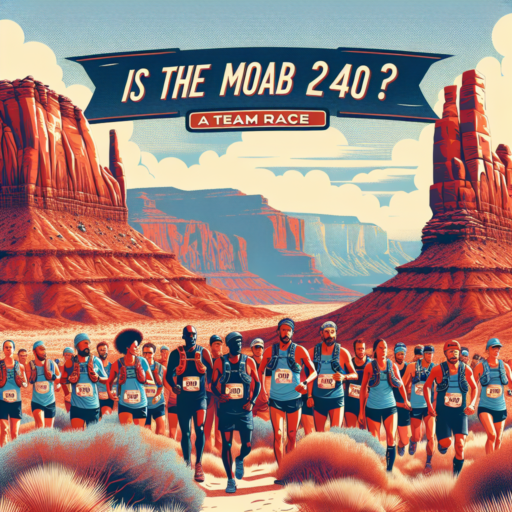No se han encontrado productos.
What is the 100 Mile Run in Colorado?
The 100 Mile Run in Colorado, also known as the Leadville Trail 100 Run, presents one of the most challenging ultra-marathon races in the United States. Set against the backdrop of the majestic Rocky Mountains, this race tests the limits of endurance, strength, and determination. Originating in the historic mining town of Leadville, Colorado, the event attracts runners from around the globe seeking to conquer extreme distances at high altitudes.
Participants of the 100 Mile Run face a variety of terrains, including rugged mountain trails, forested paths, and steep inclines, all while navigating the thin air at elevations that exceed 10,000 feet. The race is not just a physical challenge, but a mental one as well, requiring runners to overcome the daunting task of continuous movement over 24 hours or more. Competitors must be prepared for rapid weather changes, which can range from sunny skies to snow flurries, adding another layer of complexity to this grueling endurance event.
The allure of the 100 Mile Run in Colorado lies not only in its physical demands but also in the sense of community and personal achievement it fosters. Completing the race is considered a significant milestone in the ultra-running world, symbolizing extraordinary personal willpower and resilience. With each step, runners push the boundaries of what is possible, creating unforgettable experiences that last a lifetime.
Top Trails for Your Ultimate Colorado 100 Mile Run Experience
Embarking on a 100-mile run is a monumental challenge that requires not only physical endurance but also an inspiring landscape to keep you motivated. Colorado, with its rugged mountains, pristine forests, and breathtaking vistas, provides the ultimate backdrop for ultra-marathon runners seeking to test their limits. Whether you’re a seasoned long-distance runner or looking to push your boundaries, the following trails in Colorado promise to deliver an unforgettable 100-mile run experience.
Hardrock Hundred Mile Endurance Run
Known for its extreme elevation changes and technical terrains, the Hardrock Hundred Mile Endurance Run is not for the faint-hearted. This loop course navigates through the heart of the San Juan Mountains, offering runners jaw-dropping views and a relentless vertical gain. Prepare to be challenged, both mentally and physically, as you traverse scree fields, navigate snow-packed passes, and ascend steep inclines.
Leadville Trail 100 Run
The historic mining town of Leadville is home to one of America’s iconic 100-mile runs. The Leadville Trail 100 Run, affectionately known as «The Race Across The Sky,» takes runners through some of Colorado’s most rugged and beautiful high country. With elevations ranging from 9,200 to 12,620 feet, participants are tested with significant altitude variations and challenging terrains, making it a must-experience race for any endurance runner.
Training Tips for Successfully Completing a 100 Mile Ultra Marathon in Colorado
Preparation is key when it comes to tackling a 100 mile ultra marathon, especially in the challenging terrains of Colorado. The following training tips will help you build the endurance and strength needed to successfully complete this daunting distance.
Develop a Structured Training Plan
First and foremost, developing a structured training plan is crucial. Start by gradually increasing your mileage each week to build endurance without causing injury. Incorporate rest days to allow your body to recover, and consider including back-to-back long runs to simulate the fatigue you will experience during the marathon. Balance is essential, so mix in cross-training activities like cycling or swimming to improve your overall fitness while minimizing the risk of running-related injuries.
Focus on Elevation and Terrain Training
Given the hilly and often unpredictable terrain of Colorado, focusing on elevation gains in your training is a must. Spend time running on trails that mimic the race’s elevation profile as much as possible. This will not only enhance your physical readiness but also prepare you mentally for the ups and downs on race day. Incorporate strength training exercises, such as squats and lunges, to build the leg power needed to conquer steep inclines and rugged paths.
The Best Time of Year to Attempt a 100 Mile Run in Colorado
Deciding on the best time of year to attempt a 100 mile run in Colorado is crucial for achieving optimal performance and enjoyment. The state’s diverse climate and elevation changes present unique challenges and opportunities for endurance runners. In general, the late summer to early fall period stands out as the most favorable time for these ultra-distance events.
Considerations for Summer Runs
Summer in Colorado, especially from July to August, offers long daylight hours and relatively stable weather conditions. It enables runners to maximize their time on the trail without worrying excessively about early sunsets or severe weather. However, it’s important to note that afternoon thunderstorms are common in the mountains during this period, and temperatures can vary significantly from day to night.
Advantages of Early Fall
Early fall, particularly September, is often considered ideal for attempting a 100 mile run in Colorado. Temperatures start to cool, reducing the risk of heat exhaustion, yet the weather remains stable enough to avoid the unpredictability of early winter snowstorms. Additionally, the changing leaves provide breathtaking scenery, enhancing the overall experience of the run. This period also sees a decrease in the tourist and recreation crowd, offering a more isolated and focused environment for runners.
Necessary Gear and Nutrition for Enduring a Colorado 100 Mile Run
When preparing for the monumental challenge of a Colorado 100 Mile Run, your gear and nutrition are not merely accessories but your lifelines. The rugged terrains and unpredictable weather patterns demand a well-thought-out inventory of equipment and sustenance planning.
Gear Essentials for the Run
Your gear checklist should prioritize functionality and comfort. A high-quality, durable pair of running shoes that can withstand the demanding conditions is paramount. Pair these with moisture-wicking clothing to keep you dry and temperature-regulated. Given the duration of the race, a lightweight, comfortable backpack is essential for carrying your nutrition and personal items. Do not forget the importance of a headlamp and safety gear, including a whistle and reflective clothing, as parts of the race may occur during low visibility conditions.
Optimizing Nutrition for Endurance
Nutrition during a 100-mile run isn’t just about energy; it’s about sustenance, recovery, and hydration. Start with a balanced diet leading up to the race, emphasizing carbohydrates for energy storage. During the race, easy-to-consume calories from energy gels, bars, and chews should be supplemented with real food options when possible. Hydration packs with electrolyte solutions are non-negotiable to offset sweat loss and prevent hyponatremia. It’s crucial to integrate these nutritional strategies into your training to see what best suits your body.
Remember, the success of enduring a Colorado 100 Mile Run heavily relies on the meticulous selection of gear and nutrition tailored to the unique demands of the course and your personal needs. Preparing well in these areas can make the difference between a DNF (Did Not Finish) and a proud crossing of the finish line.
How to Register for 100 Mile Run Events in Colorado
Registering for a 100 mile run event in Colorado can be an exhilarating opportunity for seasoned runners seeking to test their limits amidst the state’s breathtaking landscapes. The process, while straightforward, requires attention to detail and awareness of deadlines to ensure a successful application.
Initially, identifying the event of interest is crucial. Colorado hosts a variety of 100 mile races, each with unique features and challenges. Visit the official event websites or platforms like UltraSignup to find detailed information, including registration opening dates. Marking these dates on your calendar is essential as spots for these prestigious events fill up rapidly.
Upon deciding on an event, carefully review the registration requirements and fees. Most events have specific qualifying criteria and necessitate runners to complete a particular set of prerequisites. These might include previous participation in ultra-marathons or specific medical clearances. Furthermore, early registration often comes with a discount, so acting swiftly can be beneficial for your wallet.
The Mental Preparation for Facing a Colorado 100 Mile Challenge
Tackling a 100-mile challenge in Colorado is not only a physical feat but also a significant mental endeavor. The rugged terrains and unpredictable weather conditions demand not just physical endurance but exceptional mental toughness. Mental preparation is equally, if not more, important as physical training when facing such a daunting task. Understanding and mastering the mental aspects can significantly enhance your experience and performance during the challenge.
Visualization and Goal Setting are crucial components of mental preparation. Visualizing yourself successfully completing the challenge can have a profound impact on your mental state. It boosts confidence, reduces anxiety, and fosters a positive mindset. Equally important is setting clear, achievable goals. Whether it’s aiming for a certain time, completing the challenge without injury, or simply crossing the finish line, having specific objectives gives you something tangible to focus on and work towards.
Coping strategies are essential to overcome the inevitable lows that come with such a long endurance challenge. Developing a mental toolkit that includes techniques like positive self-talk, mindfulness, and stress reduction exercises can be invaluable. Knowing how to manage fear, pain, and fatigue can make a significant difference in your ability to push through the toughest segments of the race.
Recovery Strategies After Completing a 100 Mile Run in Colorado
Completing a 100 mile run, especially in the challenging terrains of Colorado, is no small feat. The recovery process is vital to ensure your body heals properly and you can return to running stronger than before. Proper recovery strategies can make a significant difference in your post-race condition and overall wellness.
Understanding the Importance of Hydration and Nutrition
After pushing your limits for 100 miles, your body is in a state of significant fluid and energy deficit. Rehydrating and replenishing your energy stores is the first step in recovery. Focus on drinking electrolyte-rich fluids to balance your body’s mineral levels and consuming carbohydrates and proteins to repair muscle tissues and replenish glycogen stores. This initial phase of recovery is crucial for preventing injuries and ensuring a swift return to health.
Implementing Active Recovery and Rest
Active recovery, involving light exercises such as walking or cycling, can aid in reducing muscle stiffness and improving blood circulation, facilitating the healing process. However, it’s essential to balance activity with adequate rest. Your body repairs itself during sleep, making quality rest a foundational aspect of recovery. Listen to your body’s signals and allow it ample downtime to heal and rejuvenate.
By adhering to these recovery strategies, you’re not only safeguarding your health but also setting the stage for future endurance challenges. Remember, recovering from a 100 mile run is as much a mental endeavor as it is physical. Giving your body the care it needs after such a monumental achievement will ensure you’re ready for your next adventure in Colorado’s breathtaking landscapes.
Stories of Success: Inspirational Colorado 100 Mile Run Finishers
The Colorado 100 mile run is a testament to human endurance and determination. This epic journey through vast terrains and challenging weather conditions has given birth to some of the most awe-inspiring stories of success. Every finisher has a tale of grit, resilience, and the indomitable human spirit. These stories serve not only as a beacon of inspiration to aspiring runners but also to anyone facing their own metaphorical mountains.
Among the ranks of these legendary finishers, there are tales that stand out for their sheer willpower and the extraordinary circumstances they overcame. From seasoned athletes who have dedicated years to perfecting their craft to amateurs who decided to take the leap, each story is a unique chapter in the annals of the Colorado 100 mile run’s history. The common thread running through all these narratives is the unyielding desire to push beyond perceived limits.
Unforgettable Milestones Achieved
Every runner’s journey to the finish line of the Colorado 100 mile run is dotted with unforgettable milestones. These moments, whether they involve overcoming a difficult patch or experiencing an unparalleled state of flow, are cherished and celebrated. They remind us that success is not just about reaching a destination, but also about the transformative journey undertaken to get there. For many, these accomplishments go beyond setting personal records; they symbolize triumph over adversity and the capability to achieve the extraordinary.




